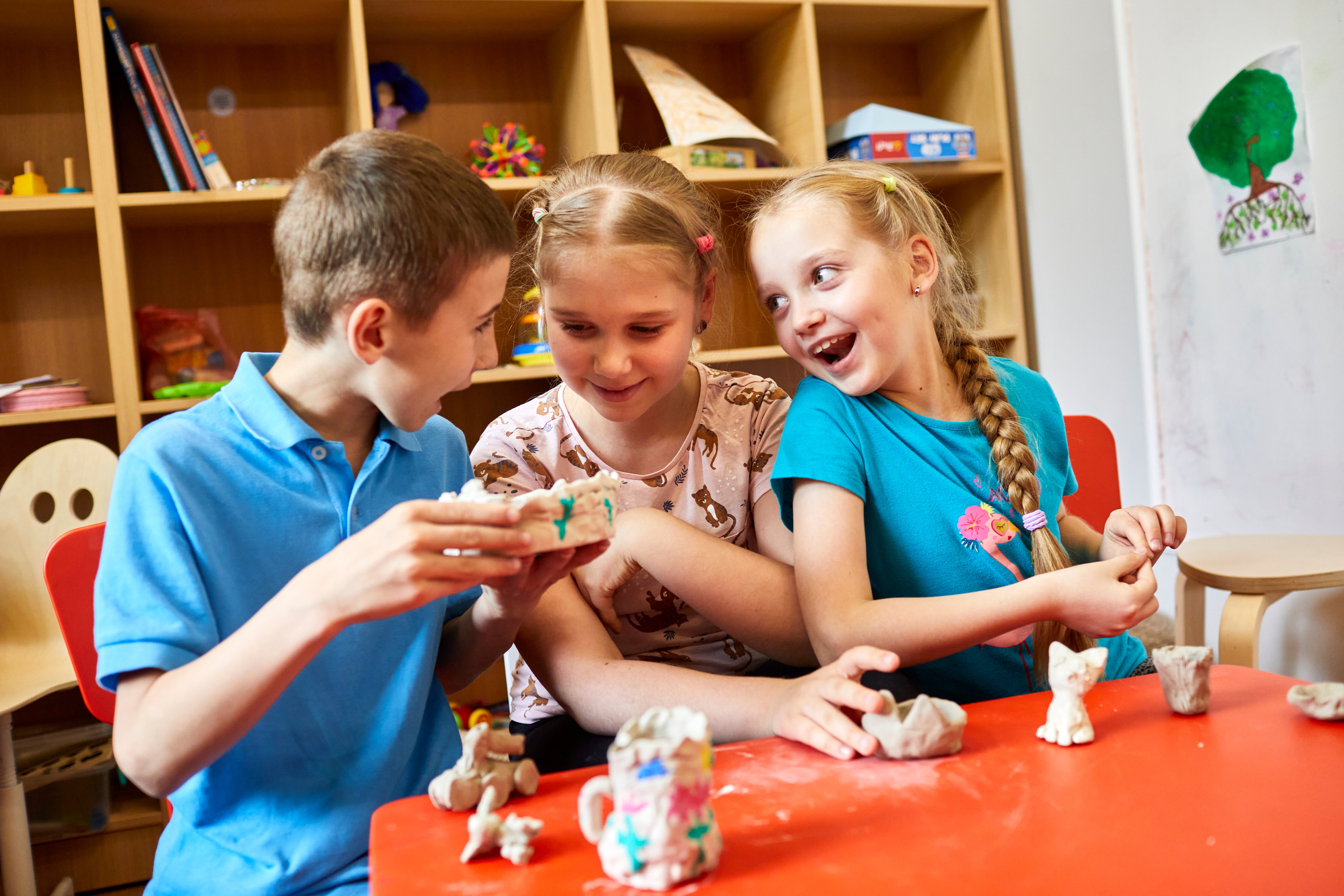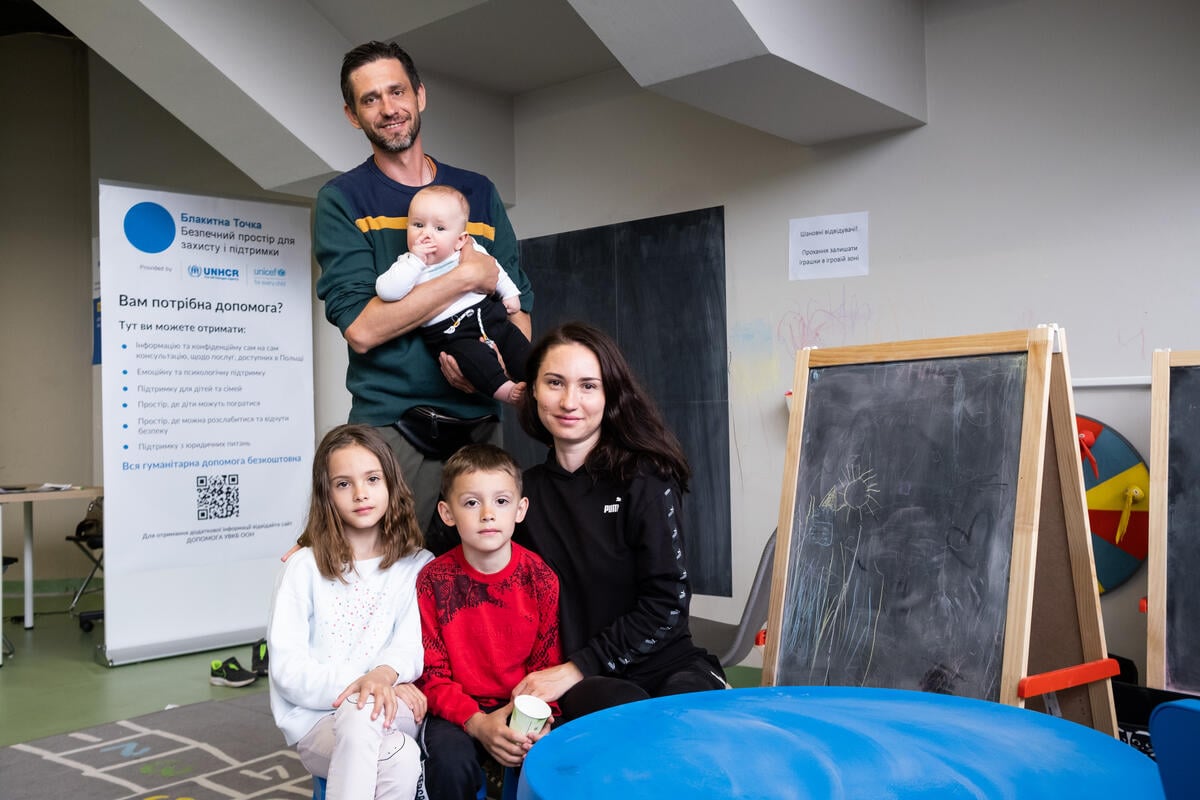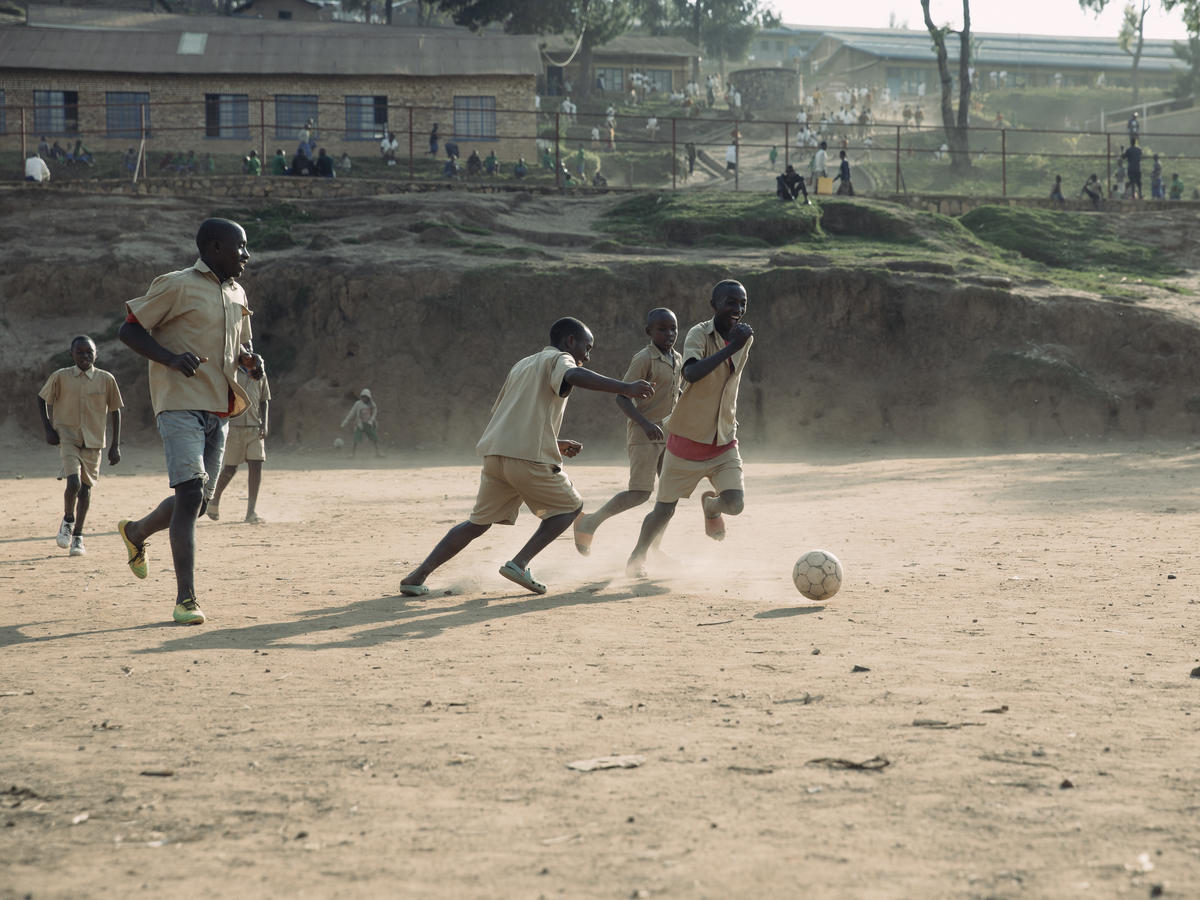UNHCR lets refugee children talk about the special problems they face
UNHCR lets refugee children talk about the special problems they face

PRETORIA, South Africa, 5 March (UNHCR) - Life for any refugee can be difficult; life for a child refugee is doubly difficult. As one young refugee told the UN refugee agency: "We are always living in fear."
That comment was heard as UNHCR conducted a series of groundbreaking workshops over the past three years to learn more about the problems facing refugee children in eight countries in Southern African - and to give the children their own role in helping to solve them.
UNHCR used a "participatory assessment" approach, asking groups of about two dozen children to answer a series of questions with drawings that illustrate their lives. Over the two-day workshops, the drawings began to reveal a complete picture of each child's life.
The results - "how children are being treated, how they perceive the violence with which they are often faced, how they cope and what suggestions they have to improving their situation" - has now been compiled in a new report prepared by Joan Allison, a UNHCR regional adviser on women and children who ran the project over the past three years.
The process has provided not only direct guidance for helping individuals, but information that UNHCR has used to strengthen the work of adults, especially the staff working in refugee camps.
"UNHCR sought to give refugee children a voice in defining and resolving their problems, and to ensure that their voice was heard by adults. Thus an important outcome of the participatory assessments was that the attention of camp and related personnel, as well as parents and caretakers, was drawn to the needs and rights of children and their obligation to fulfil them," the report said.
"This process was empowering for the young people - who are generally among the world's most disempowered - and is contributing to redressing some of their concerns as action plans are implemented."
The exercises held in South Africa, where there are no refugee camps, involved refugees living in urban areas who face many different challenges than those encountered by children housed in camps. "Many of the children spoke of violence they had witnessed in their area or been directly exposed to: robbery, shootings, stabbings, and home break-ins involving rape. As a result, the children live in constant fear of attack," said the report.
In Angola, the UNHCR team worked with children who were returning home after life in refugee camps in neighbouring countries. "The main issue raised by children was violence and discrimination against them by people from the nearby community, especially when they were collecting water."
In Zambia, Botswana, Malawi, Mozambique, Zimbabwe and Namibia, the study was with children living in refugee camps. "Camps where refugees share water and schools with local communities, and where children gather firewood on a regular basis, were singled out as particularly dangerous for children. In addition, ethnic-based tensions are more acute in some camps than others," the report said.
Children had adopted simple strategies to protect themselves, such as moving only in groups and not venturing outside their houses at night. It repeatedly emerged that children were not aware of those people in the camp who could provide protection.
"Most children, especially girls, expressed feelings of powerlessness against the forces of violence and discrimination they encounter on a regular basis. Asked how children can remain safe, typical responses were: 'There's no solution to that' and 'There is no safe place for children.'"
The study concluded that the greatest impact of the participatory assessments was to give a voice to the children, which increased their self-confidence and the respect they received from adults. Field staff report concrete improvements in the lives of children and the approach is now being used by UNHCR in other areas of the world.
"As the process evolved over the past three years, UNHCR has increasingly recognized the important contribution children can make and has thus placed growing emphasis on building the capacity of camp and other staff working with refugees to understand and respond to issues facing children," the report said.
By Jack Redden in Pretoria, South Africa









